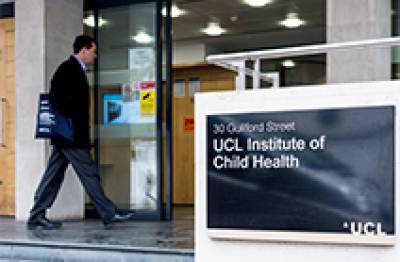Epilepsy surgery found to reverse cognitive decline in children
13 September 2024
There is a significant improvement in the cognition of children who have undergone brain surgery for epilepsy, finds a new study by UCL researchers.

The study, published in Brain, retrospectively analysed the records of 500 children who had undergone epilepsy surgery at Great Ormond Street Hospital (GOSH) between the years of 1990 and 2018.
Information was extracted from IQ tests and tests of academic attainment performed many years before and after surgery. Most children studied had shown declines in all areas of neuropsychological functioning, in comparison with their healthy peers, in the time leading up to surgery.
A range of factors have been attributed as causes of cognitive impairments in children with epilepsy, including the underlying cause of their epilepsy, ongoing seizures, and use of antiseizure medication.
The researchers found that children were on a downward cognitive trajectory in the years before they underwent surgery (losing on average 1-4 IQ points per year). Based on this observation, it could be expected that, without intervention, they would have continued on this downward trajectory.
However, the researchers found that the surgery not only stopped the downward trajectory of neuropsychological functioning for children who became seizure free, but also reversed it. These children continued to show improvements in cognitive functioning over the course of their long-term follow-up. There was an additional benefit in that children were able to be weaned off anti-seizure medication.
Lead author, Dr Maria Eriksson said: “We have known for many years that brain surgery for drug-resistant epilepsy can be transformative in achieving seizure freedom for children, but we have known less about how surgery impacts cognition, particularly in the long-term.
“This study shows us the extent to which children’s cognition can continue to improve in the years after surgery, allowing them to catch-up with their peers.
“We hope this knowledge will support clinicians and help to empower children and their families when making an informed decision on whether to proceed with brain surgery for epilepsy.”
This is the first study of its kind to have measured changes in cognitive ability over such a long-term period – more than 10 years before and 15 years after surgery – and across all types of epilepsy.
In previous studies, where analysis was only conducted directly before and directly after surgery, cognitive ability appeared unchanged in children. However, lead scientist Dr Maria Eriksson and the team at UCL Great Ormond Street Institute of Child Health found that when children were followed up many years after surgery, freedom from seizures because of surgery led to an uplift in children’s cognition, including problem-solving, memory and academic performance.
The study was supported by the National Institute for Health and Care Research Great Ormond Street Hospital Biomedical Research Centre (NIHR GOSH BRC).
Researchers and scientists who took part in the study have received support and funding from GOSH Charity, the Child Health Research Studentship (funded by NIHR GOSH BRC), the Sigrid Jusélius Foundation, the Rosetrees Trust, Epilepsy Research UK and Wellcome.
Links
- Research in Brain
- Dr Maria Eriksson's academic profile
- UCL Great Ormond Street Institute of Child Health
- UCL Population Health Sciences
Image
- Credit: Thitima Uthaiburom on iStock
Media contact
Poppy Tombs
E: p.tombs [at] ucl.ac.uk
 Close
Close


